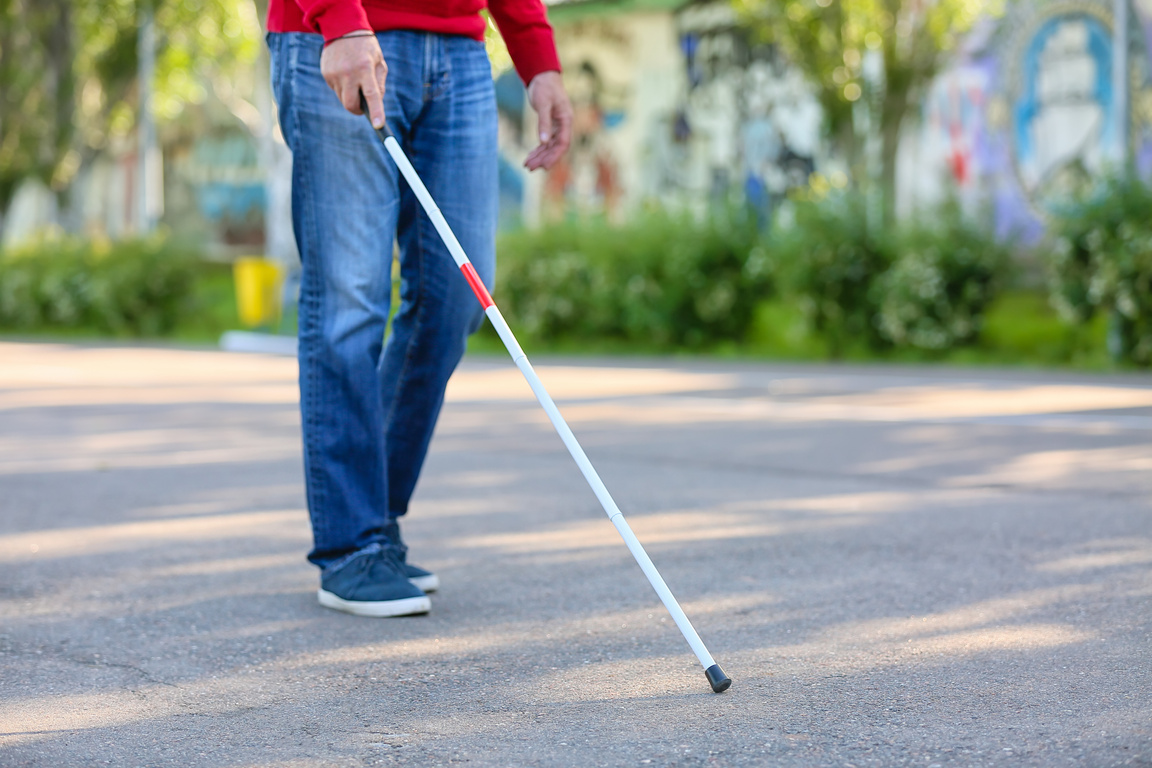Certified Orientation and Mobility Specialist (COMS)
An Orientation and Mobility (O&M) Specialist teaches individuals with visual impairments to travel safely, confidently, and independently in their environment. The O&M specialist works with infants, children, and adults usually on a one-to-one basis in a home, school, hospital, or in the community.
On a typical day, an orientation and mobility specialist might orient a student who is blind to locate classes, the cafeteria, and the library. The O&M specialist may instruct a young adult who has low vision in the use of a GPS device or teach a student to cross two busy streets to get to their favorite restaurant. On another day, the O&M specialist may motivate an infant who is totally blind to engage in purposeful movement towards a musical toy or collaborate with city planners and traffic engineers to develop safe intersection designs for pedestrians who have a visual impairment.
|
|
|
Roles and Responsibilities:
- Instructs the visually impaired student in the development of skills and knowledge that enables him or her to travel independently, based on assessed needs and ability.
- Teaches the visually impaired student to travel with proficiency, safety, and confidence in familiar and unfamiliar environments.
- Consults regularly with sighted peers, parents, classroom teachers, physical education teachers, and/or other special education personnel to assist in home and classroom environmental modifications, adaptations, and considerations and to ensure reinforcement of appropriate O&M skills that will encourage the visually impaired student to travel independently in these settings.
- Works with the teacher of students with visual impairments to conduct the functional vision assessment as it relates to independent travel.
- Conducts assessments that focus on both long and short-term needs of the student.
- Includes in the assessment report the needs and strengths of the student and an estimate of the length and frequency of service necessary to meet identified needs.
- Prepares sequential and meaningful instruction geared to the student’s assessed needs, IEP goals and objectives, functioning, and motivational levels. This instruction should be reflected in weekly or monthly lesson plans, as appropriate.
- Prepares and uses equipment and materials, for example, tactile maps, models, distance low vision devices, and long canes, for the development of O&M skills.
- Transports the student with parent permission to various community locations, as necessary, to provide meaningful instruction in realistic learning environments.
- Is responsible for the student’s safety at all times and in all teaching environments while fostering maximum independence.
- Evaluates the student’s progress on an ongoing basis with progress reports each 6/9 weeks as required.
- Keeps progress notes on each student.
- Participates in necessary parent conferences and meetings.
- Provides in-service training to regular and special education personnel, sighted peers, and parents concerning the O&M needs of the student and
- appropriate methods and procedures for interacting with the visually
- impaired person that will foster maximum independence and safety.
- Provide O&M instruction, where appropriate, in a number of specific areas:
- body imagery
- laterality
- environmental concepts
- gross and fine motor skills related to independent travel
- sensory awareness, stimulation, and training
- spatial concepts
- compass direction concepts
- sighted guide procedures
- basic protective and information-gathering techniques
- orientation skills
- map skills
- cane skills
- use of residual vision
- low vision devices related to travel skills
- urban, suburban, and rural travel
- travel in business districts
- procedures for crossing streets including how to deal with traffic control signals
- use of public transportation systems
- procedures for use of the telephone for information gathering and for emergencies
- procedures for interacting with the public
- knowledge and application of community address systems
- procedures for travel and independent functioning in places of public accommodation
- skills of daily living
- sensory/motor skills in coordination with the physical or occupational therapist and teacher of students with visual impairments
- skills for independent living
Taken from: The Texas School for the Blind and Visually Impaired

